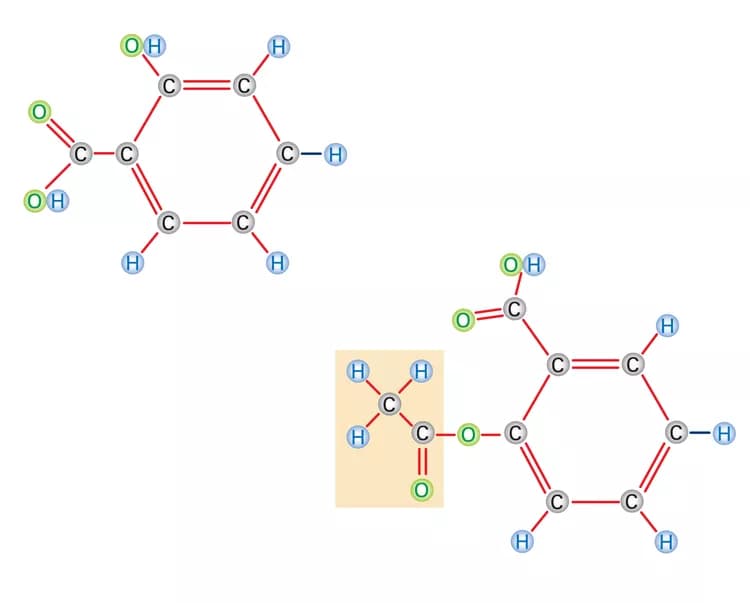
Can An Aspirin A Day Keep Liver Cancer Away?
A new study presented this week at The Liver Meeting® -- held by the American Association for the Study of Liver Diseases -- found that daily aspirin therapy was significantly associated with a reduced risk in hepatitis B virus‐related liver cancer.
Hepatitis B is a viral infection that attacks the liver. HBV can be contracted through contact with an infected person's blood or other bodily fluid, and the infection can either be acute or chronic. According to AASLD's Guidelines for Treatment of Chronic Hepatitis B, an estimated 240 million people worldwide have chronic HBV, and the highest prevalence of the virus is in Africa and Asia. Death from HBV is commonly due to the development of cirrhosis (scaring of healthy liver tissue) or hepatocellular carcinoma (liver cancer).
Past research suggests that daily aspirin therapy -- which is often prescribed to prevent cardiovascular disease -- may also prevent the development of cancer. However, clinical evidence is lacking for the effectiveness of aspirin therapy in preventing HBV‐related liver cancer.
Researchers at Taichung Veterans General Hospital in Taichung, Taiwan; E‐Da Hospital in Kaohsiung, Taiwan; Fu Jen Catholic University in New Taipei City, Taiwan; and National Taiwan University Hospital in Taipei conducted a nationwide cohort study to determine if aspirin therapy could, indeed, reduce liver cancer risk.
"Liver cancer is the second leading cause of cancer death worldwide, and HBV is the most prevalent risk factor in our region, says Teng‐Yu Lee, MD, PhD, a researcher in the Department of Gastroenterology at Taichung Veterans General Hospital and lead investigator in the study. "HBV‐related liver cancer is therefore a major public health issue with a severe socioeconomic impact."
Although current antiviral medicines such as nucleos(t)ide analogue therapy could significantly reduce liver cancer risk, Dr. Lee notes these therapies do not completely eliminate the risk. Additionally, Dr. Lee says most HBV carriers are not indicated for antiviral therapy, so another effective way of reducing liver cancer risk needs to be developed.
"Aspirin has been investigated to explore its chemopreventive effect in cancers that are related to chronic inflammation, particularly in the prevention of colorectal cancer. However, clinical evidence supporting the chemopreventive effect of aspirin therapy on liver cancer remains limited. Therefore, we conducted a large‐scale cohort study to evaluate the association of aspirin therapy with HBV‐related liver cancer."
The researchers retrieved medical records from the National Health Insurance Research Database between 1998 and 2012 for their study. They screened records of 204,507 patients with chronic hepatitis B, and excluded patients with other forms of infectious hepatitis. After excluding patients with liver cancer before the follow‐up index dates, 1,553 patients who had continuously received daily aspirin for at least 90 days were randomly matched 1:4 with 6,212 patients who had never received anti‐ platelet therapy by means of propensity scores consisting of baseline characteristics, the index date and nucleos(t)ide analogue (NA) use during follow‐up. The researchers analyzed both cumulative incidents of and hazard ratios for HCC development after adjusting for competing mortality.
Cumulative incidence of liver cancer in the group treated with aspirin therapy was significantly lower than that in the untreated group in five years. In their multivariate regression analysis, the researchers found aspirin therapy was independently associated with reduced liver cancer risk. Sensitivity subgroup analyses also verified this association. Older age, male gender, cirrhosis and diabetes also were independently associated with an increased risk, but nucleos(t)ide analogue or statin use was associated with a decreased risk.
"For effectively preventing HBV‐related liver cancer, the findings of this study may help hepatologists treat patients with chronic HBV infection in the future, particularly for those who are not indicated for antiviral therapy. We are pursuing prospective investigations for further confirming the findings," says Dr. Lee.
Materials provided by American Association for the Study of Liver Diseases (AASLD). Note: Content may be edited for style and length.
Disclaimer: DoveMed is not responsible for the accuracy of the adapted version of news releases posted to DoveMed by contributing universities and institutions.
References:
American Association for the Study of Liver Diseases (AASLD). (2017, October 20). Can an aspirin a day keep liver cancer away? Retrieved October 21, 2017.
Related Articles
Test Your Knowledge
Asked by users
Related Centers
Related Specialties
Related Physicians
Related Procedures
Related Resources
Join DoveHubs
and connect with fellow professionals

0 Comments
Please log in to post a comment.